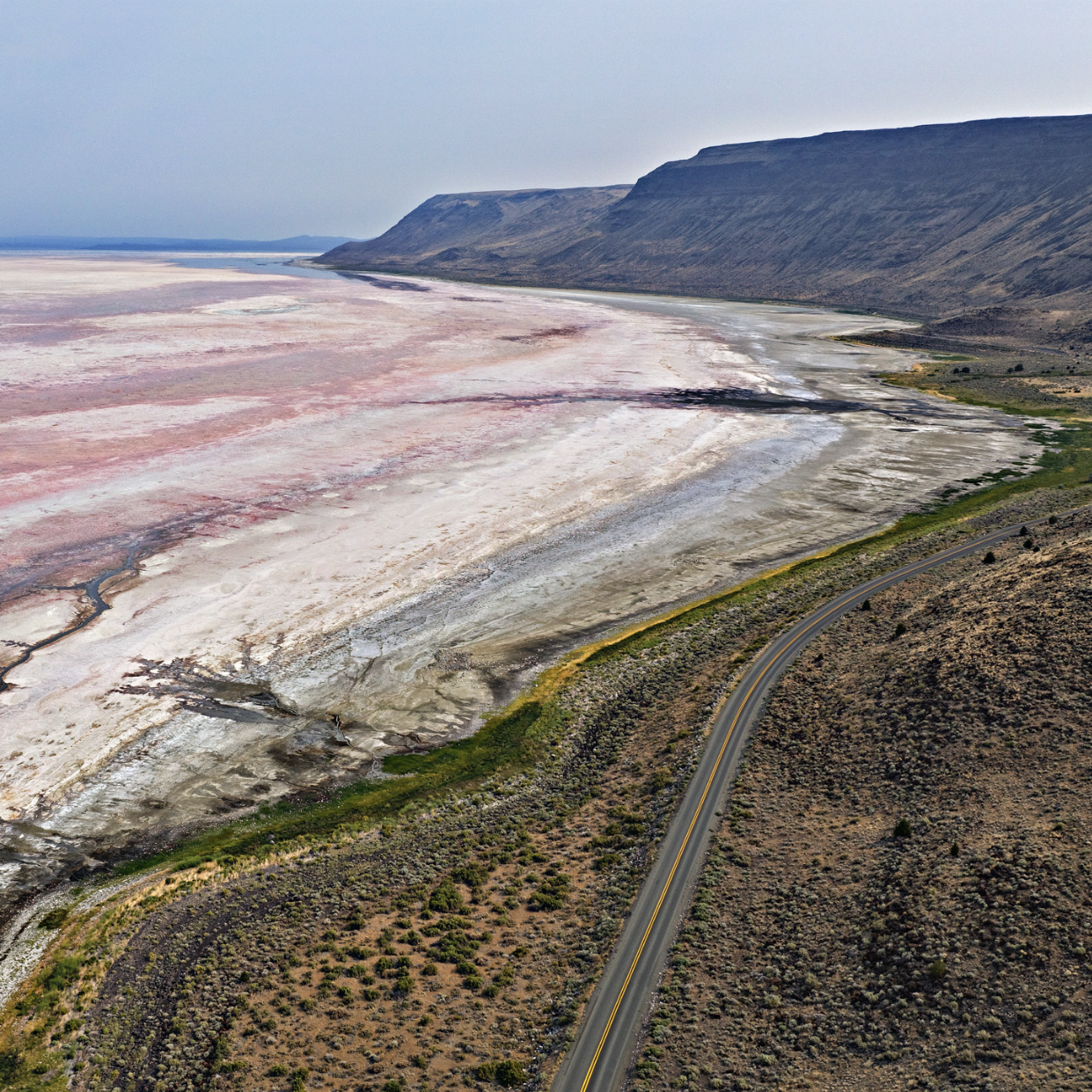Dust lakes keep popping up across the West
The Atlantic / High Country News
January, 2023
“The Interior West is full of salt lakes, created when snowmelt pools in the valley bottoms of the Basin and Range region. The valleys have no outflow, so the water remains until it evaporates, leaving behind the particles that were suspended in it. These accumulate over time, giving the lakes a high salinity.
‘It creates a unique system that supports brine shrimp and alkali flies that can feed incredible populations of migratory birds,’ said Ryan Houston, executive director of the Oregon Natural Desert Association, which seeks to conserve Oregon’s high desert, including Summer Lake and Lake Abert.
Yet this balance of runoff, salts and evaporation also makes saline lakes highly sensitive to climate change. Decreasing snowpack and increasing evaporation due to higher temperatures means that there is less water in the lakes and a higher concentration of salt. That stresses shrimp and flies, which have adapted over time to specific salinities, and it also exposes dry lakebeds, creating dangerous dust storms.”
The Atlantic / High Country News
January, 2023
“The Interior West is full of salt lakes, created when snowmelt pools in the valley bottoms of the Basin and Range region. The valleys have no outflow, so the water remains until it evaporates, leaving behind the particles that were suspended in it. These accumulate over time, giving the lakes a high salinity.
‘It creates a unique system that supports brine shrimp and alkali flies that can feed incredible populations of migratory birds,’ said Ryan Houston, executive director of the Oregon Natural Desert Association, which seeks to conserve Oregon’s high desert, including Summer Lake and Lake Abert.
Yet this balance of runoff, salts and evaporation also makes saline lakes highly sensitive to climate change. Decreasing snowpack and increasing evaporation due to higher temperatures means that there is less water in the lakes and a higher concentration of salt. That stresses shrimp and flies, which have adapted over time to specific salinities, and it also exposes dry lakebeds, creating dangerous dust storms.”


